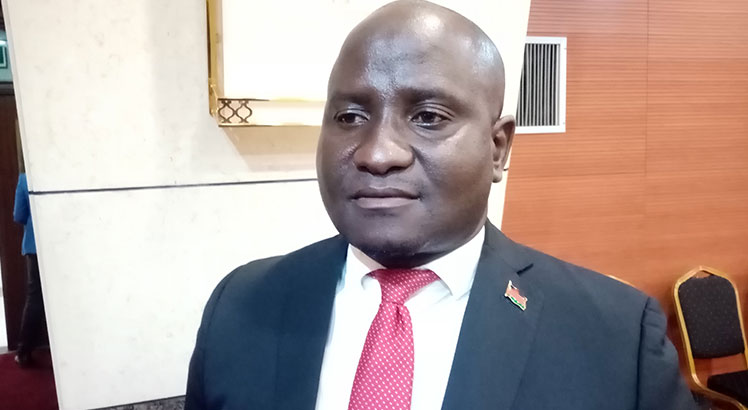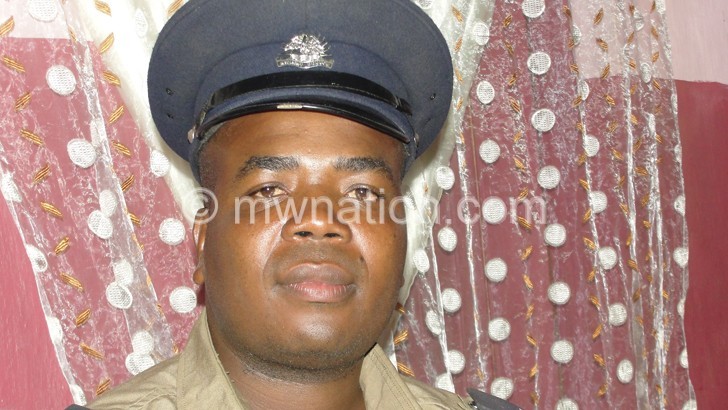Govt’s wild goose chase for AG costly
The position of Auditor General (AG), which has been vacant for four years, will not be filled anytime soon after government’s latest effort hit a snag.
Secretary to Treasury (ST) MacDonald Mafuta-Mwale disclosed in an interview on Tuesday that no one was picked for the job after government advertised it from February 23 2023—March 18 2023.

He said two candidates only were shortlisted after meeting the qualification of 15 years of auditing experience, five of them at senior management level, prescribed by the Public Accounts and Auditors Act of 2022.
Said Mafuta-Mwale: “However, the experience of one of the two shortlisted candidates is in consulting, and not auditing. This leaves only one candidate. The recommendation is to re-advertise until we get at least three candidates to be shortlisted.”
Parliament in December last year passed the Audit (Amendment) Bill of 2022 which softened some provisions for the qualifications of the AG—requirements which have made it difficult for government to fill the position following the expiry of the contract for the immediate past AG Stephenson Kamphasa in 2018.
The new Act also scraped off some restrictive qualifications such as that the office-holder must have a practising certificate with the Malawi Accountancy Board.
Kamphasa’s contract expired in 2018 and when Parliament amended the Public Audit Act in 2018, it inserted the requirement for a ‘valid practising licence’. Since then, government has not employed a permanent AG.
Instead, there have been two acting AGs—Thomas Makiwa and the incumbent Rexie Chiluzi—both of whom did not possess operating practising licences at the time of their appointment.
The ST re-advertised the position in yesterday’s print media.
Public Accounts Committee (PAC) Parliament chairperson Mark Botomani said it was disappointing that the recruitment exercise did not yield the intended results.
He said: “The last update I got from the Minister [of Finance] was that there was a positive response after the position was advertised. He, actually, said we are getting closer to hiring one after interviews. Now this?”
“The delay has serious ramifications on the accountability of public resources since the one acting has limitations with regard to executing important decisions at the National Audit Office.
“My office will once again engage the Minister of Finance to see if government can consider reviewing some of its processes in order to move fast on this.”
Democratic Progressive Party spokesperson on finance Shadric Namalomba pointed out in an earlier interview that since 2020/21 government’s accounts have not been signed as audited because of the absence of the AG, and therefore, could not come to Parliament for scrutiny.
Namalomba said failure to present the audit reports to Parliament has serious threats to public funds as controlling officers may not feel compelled to spend within budgets knowing they will not be held accountable.
“Besides, in the absence of audited financial reports, there cannot be effective provision of the oversight role due to lack of accountability and those looting public funds will continue doing so because there are no checks and balances.
“As such, Malawians will continue losing their hard-earned resources through mismanagement or misprocurement.”
Parliament is supposed to receive audit reports every year for scrutiny.
Section 184 of the Constitution and 15 (1) of the Public Audit Act demands the Auditor General to submit to the President and the Speaker of the National Assembly, audit reports on government accounts by 31 December each year.
The Act in Section 19(1) (a) says part of the functions of PAC is to examine and report to the National Assembly on the financial statements of the government generally; and in particular to examine and report on the financial statements of the government in the light of the outputs proposed and the performance criteria in the relative estimates, together with each statement and report of the Auditor General presented to the National Assembly.
National Audit Office’s (NAO) failure to present audited accounts to Parliament since 2018, comes on the back of weaknesses in the public finance management system that have in the past cost government billions, according to public officials and watchdogs.
In 2001, the then Director of Public Prosecutions Fahad Assani said 30 percent of the national budget is lost through fraud and corruption. Former Anti-Corruption Bureau (ACB) director general Rizine Mzikamanda, now Chief Justice, quoting an unnamed research also made a similar observation.
The same was echoed in October 2019 by a graft watchdog Action Against Corruption when its leadership met Parliament’s Legal Affairs Committee and Public Appointments Committee.
Former Auditor General Kamphasa told The Nation in 2020 that between 10 and 30 percent of public funds is lost annually due to non-observance of well-established procurement systems and financial procedures.
Mafuta-Mwale said all the audits for the financial years were conducted and completed, but they were referred to the Auditor General.
NAO spokesperson Rabson Kagwam’minga earlier said his office conducted audits of individual ministries, departments and agencies (MDAs) for the year ended June 30 2021 and submitted reports to the MDAs as well as the Office of the President and Cabinet and Secretary to the Treasury.





